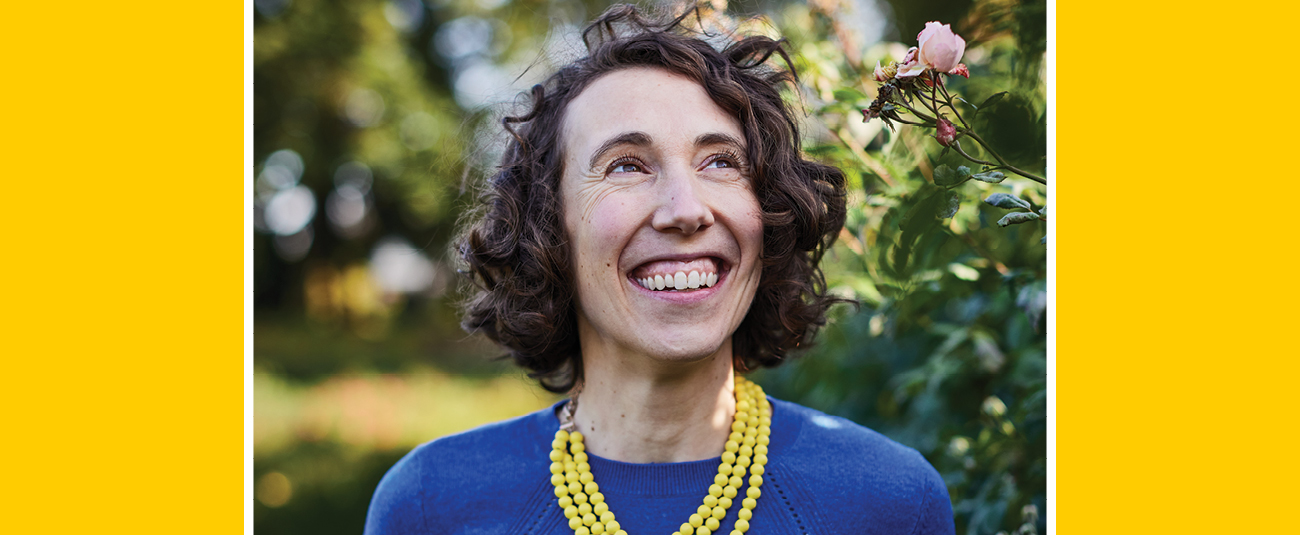Young Alumni
Rockweiler uses her passion to improve the world
A mentor once described Holly Rockweiler as “an activist in a lab coat.”
Rockweiler, who earned bachelor’s and master’s degrees in biomedical engineering from the School of Engineering at Washington University in St. Louis in 2007, is passionate about women’s health and is now working to improve the lives of women as co-founder and CEO of Madorra, a medical device company.
“I’m not someone who is going to have a megaphone and lead a march,” Rockweiler said. “But this is a way I can use my engineering, R&D and startup experience to promote what I want to see in the world, which is equal treatment for women.”
Rockweiler and her team founded Madorra while she was enrolled in the Biodesign Innovation Fellowship at Stanford University. The company is developing an at-home, external device that aims to treat genitourinary syndrome of menopause. Formally known as vaginal atrophy, the condition causes itching, dryness and discomfort during urination. Madorra’s new device will use ultrasound to reactivate the body’s own natural lubricating mechanisms.
Rockweiler acknowledges the awkwardness that can sometimes arise when discussing her work.
“I would say we’re working on quality of life and be vague about what we were doing,” she said. “Then someone said to me, ‘Holly, if you’re not saying vagina, who is going to say it?’ That helped me step into the space of just speaking about it. Now when I pitch, I get compliments on how I made it approachable and easy to understand. I talk about it like heart disease or diabetes.”
It’s a lesson that’s helped her in her mission to bring equity to women’s health.
“Two percent of each dollar goes to female entrepreneurs,” Rockweiler said. “Imagine being a female entrepreneur talking about women’s vaginas. We cannot ignore that women’s health has been overlooked for so long and funding has not been given to this.”
Rockweiler never planned to become an entrepreneur, but she said she felt her engineering education more than prepared her to take on the challenge.
“Engineering taught me how to problem solve and to understand what I know and don’t know,” Rockweiler said. “I then know how to go about structuring the process to develop the understanding I need.”
Rockweiler encourages WashU engineers to keep their minds open when following their own passions.
“I didn’t set out as a first grader saying I wanted to be a startup CEO or even a biomedical engineer,” she said. “I’ve learned along the way you don’t have to have a plan. I’m very excited about where I am. I got to know myself more along the way.”
Back to Engineering Momentum
